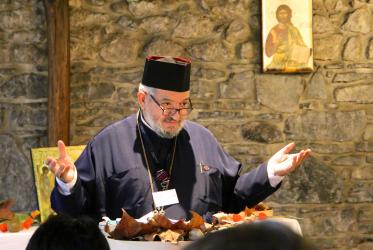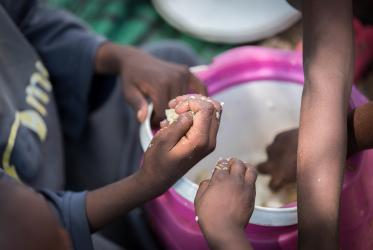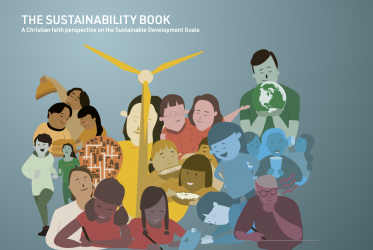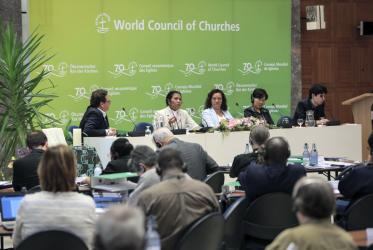Displaying 21 - 40 of 102
11 - 13 February 2021
The Call of Abraham: Blessings and Testings for the Church
29 September 2020
Greenland’s grand Gospel preacher
07 February 2020
WCC looks to strengthen Christian health networks
19 December 2019
A humble servant in God’s herd
10 July 2019
WCC moderator speaks at Justice Conference in Norway
09 November 2018
“There is no more time to waste,” says WCC of climate actions
07 November 2018
WCC welcomes new staff
06 November 2018









